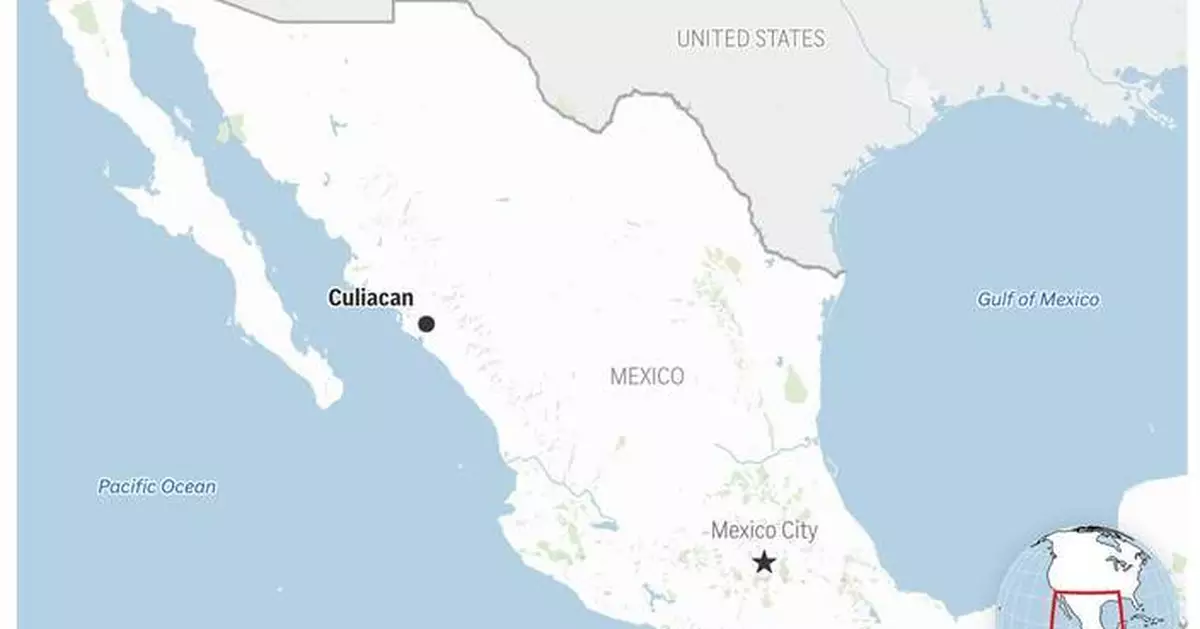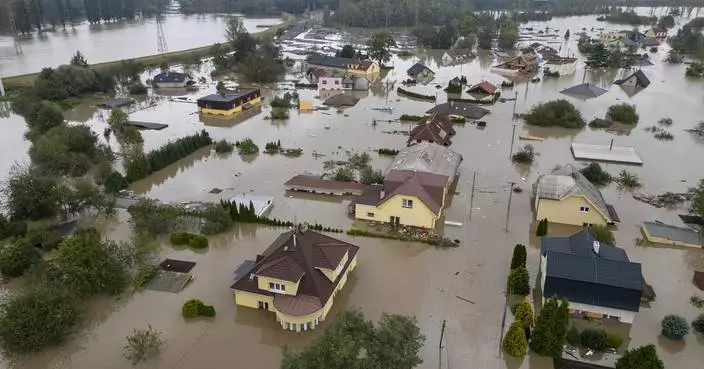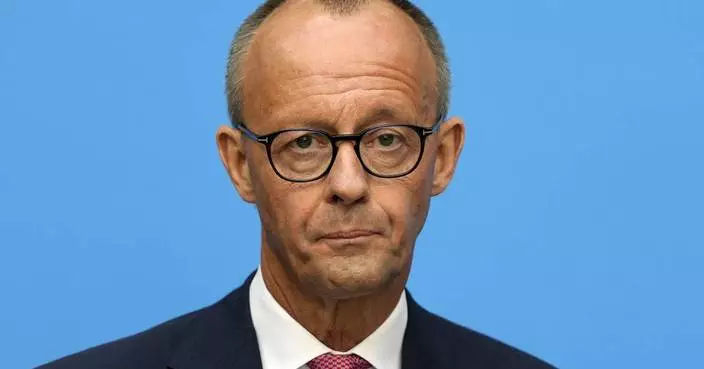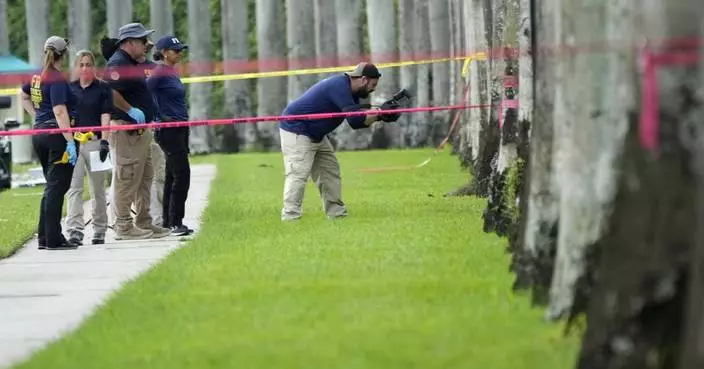MEXICO CITY (AP) — Schools and businesses in Culiacan, the state capital of Sinaloa remained closed and festivities around Mexican Independence were canceled Thursday as fears over clashes between factions of the Sinaloa cartel disrupt life in the northern city of 1 million.
Sinaloa Gov. Rubén Rocha and outgoing President Andrés Manuel López Obrador – both of the ruling Morena party – have downplayed the tensions, which started Monday, and said that local, state and federal forces are ensuring safety in the area.
But despite the recent deployment of special forces soldiers, planes and heavily armed helicopters, the fear continues. Even Rocha recognized that the clashes, which have followed the arrest in the U.S. of two cartel leaders in late July, could continue.
Security forces are “dissuading some violent acts but above all reducing the risks to the population to a minimum,” Rocha said in a video posted to social media Thursday.
Still, for safety reasons, he said “there will not be any celebration” for the Sept. 15-16 holiday, adding that school will be suspended Thursday and Friday because so few students showed up.
In 2008, a grenade attack in the city of Morelia, west of Mexico City, during the independence celebrations killed eight and wounded dozens, in what was an unusual cartel mass attack on civilians.
The Sinaloa governor maintained the state has sufficient security presence to protect people, but around Culiacan people appear to have a very different view.
“The government doesn’t control anything, absolutely nothing,” said Ismael Bojórquez, director of the weekly newspaper Riodoce in Culiacan, which specializes in coverage of organized crime. “There is a lot of fear. The people are defenseless.”
As an example, he said that on Tuesday gunmen in a convoy of 15 trucks drove into the city and later left without any authority stopping them.
Bojórquez said that cartel gunmen have their shootouts, kidnap and burn, then the government arrives to clean up and take away the burned vehicles.
Faced with inaction from the government, residents took their own precautions including not sending their children to school, he said.
Juan Carlos Ayala, a professor of philosophy at the University of Sinaloa, said that just between Wednesday and Thursday he came upon three shootouts.
“The city appears empty,” he said. “They’re clashing everywhere.”
He noted that the internal clash created a lot of uncertainty. “They all know each other, they know where each other lives. They come, wreck the houses, take relatives.”
A 65-year-old retiree named Jesús, who lives in a rural community on the outskirts of Culiacan and gave only his first name for safety, said he had asked his children to leave his grandchildren home and to not believe that things are calm even if the government says so.
As of Wednesday, the state prosecutor’s office had reported nine dead, eight injured and 14 abducted, but the actual number of fatalities may be higher since the cartels often pick up their own dead.
The surge in violence had been expected after Joaquín Guzmán López, a son of former Sinaloa cartel leader Joaquín “El Chapo” Guzmán, landed near El Paso, Texas on July 25 in a small plane with Ismael “El Mayo” Zambada.
Zambada was the cartel’s elder figure and reclusive leader. After his arrest, he said in a letter circulated by his lawyer that he had been abducted by the younger Guzmán and taken to the U.S. against his will.
Now there appears to be a struggle for power between the remaining sons of El Chapo, known locally as “the Chapitos,” and those loyal to Zambada.
Follow AP’s coverage of Latin America and the Caribbean at https://apnews.com/hub/latin-america
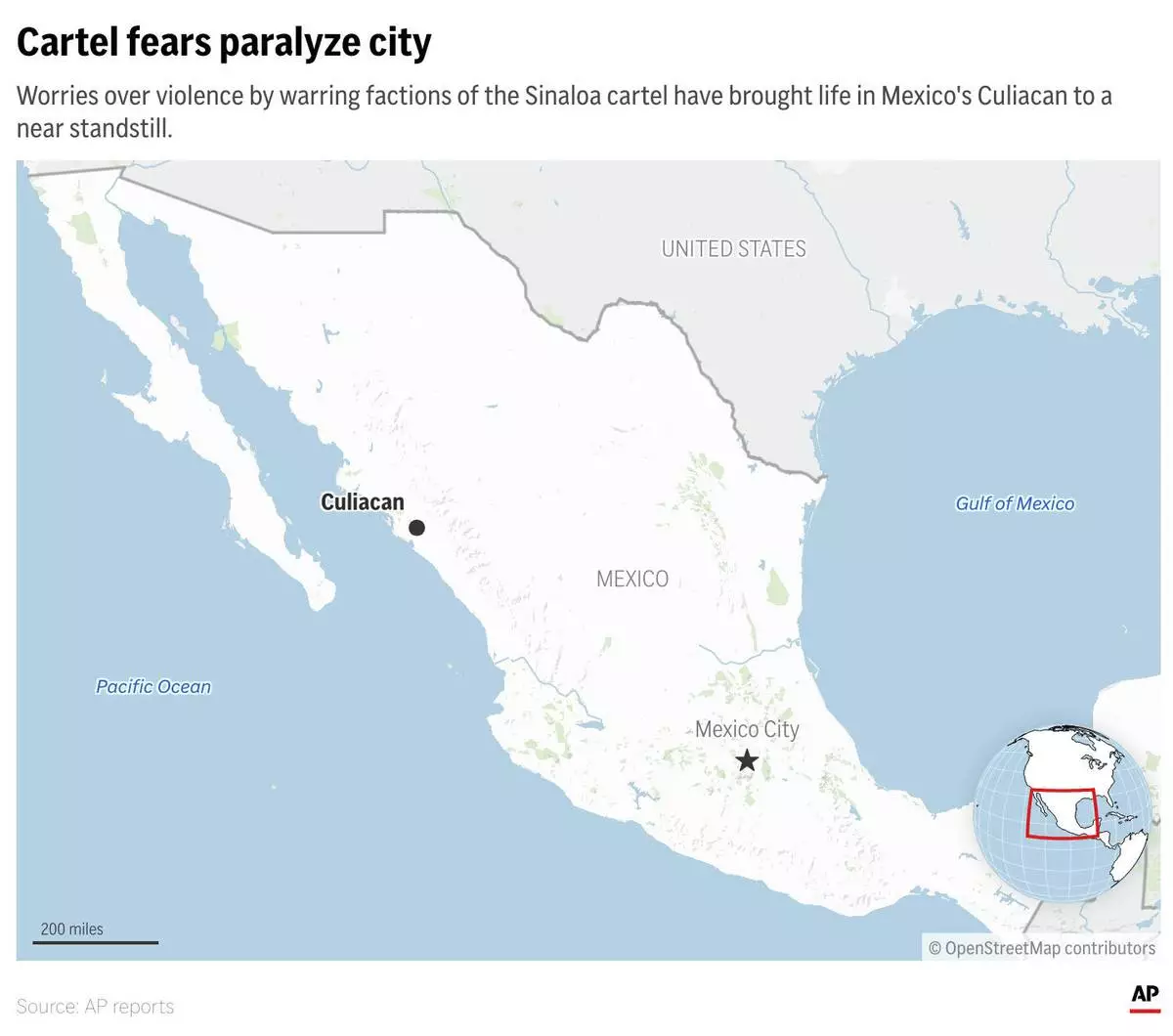
Schools and businesses in Culiacan, Mexico, are closed and security has been increased as violent clashes play out between factions of the Sinaloa cartel. (AP Graphic)
AVIGNON, France (AP) — A 71-year-old French man acknowledged in court on Tuesday that over nearly a decade, he was drugging his wife at the time and inviting dozens of men to rape her, as well as raping her himself. He pleaded with her, and their three children, for forgiveness.
“Today I maintain that, along with the other men here, I am a rapist,″ Dominique Pélicot told the court. “They knew everything. They can’t say otherwise.”
Dominique Pélicot's testimony is the most important moment so far in a trial that has shocked and gripped France, and raised new awareness about sexual violence. Many also hope his testimony will shed some light — to try to understand the unthinkable.
While he previously confessed to investigators, the court testimony will be crucial for the panel of judges to decide on the fate of some 50 other men standing trial alongside him. Many deny having raped Gisèle Pélicot, saying they were manipulated by her then-husband or claiming they believed she was consenting.
Gisèle Pélicot has become a symbol of the fight against sexual violence in France for agreeing to waive her anonymity in the case, letting the trial be public, and appearing openly in front of the media. She is expected to speak in court after her ex-husband’s testimony on Tuesday.
Under French law, the proceedings inside the courtroom cannot be filmed or photographed. Dominique Pélicot is brought to the court through a special entrance inaccessible for the media, because he and some other defendants are being held in custody during the trial. Defendants who are not in custody come to the trial wearing surgical masks or hoods to avoid having their faces filmed or photographed.
After days of uncertainty due to his medical state, Dominique Pélicot appeared in court Tuesday and told judges he acknowledged all the charges against him.
His much-awaited testimony was delayed by days after he fell ill, suffering from a kidney stone and urinary infection, his lawyers said.
Seated in a wheelchair, Pélicot spoke to the court for an hour, from his early life to years of abuse against his now ex-wife.
Expressing remorse, his voice trembling and at times barely audible, he sought to explain events that he said scarred his childhood and planted the seed of vice in him.
“One is not born a pervert, one becomes a pervert,” Pélicot told judges, after recounting, sometimes in tears, being raped by a male nurse in hospital when he was 9 years old and then being forced to take part in a gang rape at age 14.
Pélicot also spoke of the trauma endured when his parents took a young girl in the family, and witnessing his father’s inappropriate behavior toward her.
“My father used to do the same thing with the little girl,'' he said. “After my father’s death, my brother said that men used to come to our house.”
At 14, he said, he asked his mother if he could leave the house, but “she didn’t let me.”
“I don’t really want to talk about this, I am just ashamed of my father. In the end, I didn’t do any better,'' he said.
Asked about his feelings toward his wife, Pélicot said she did not deserve what he did.
“From my youth, I remember only shocks and traumas, forgotten partly thanks to her. She did not deserve this, I acknowledge it,” he said in tears.
At that moment, Gisèle Pélicot, standing across the room, facing him across a group of dozens of defendants sitting in between them, put her sunglasses back on.
Later, Dominique Pélicot said, “I was crazy about her. She replaced everything. I ruined everything.”
A security agent caught Pélicot in 2020 filming videos under women’s skirts in a supermarket, according to court documents. Police searched Pélicot’s house and electronic devices, and found thousands of photos and videos of men engaging in sexual acts with Gisèle Pélicot while she appears to lie unconscious on their bed.
With the recordings, police were able to track down a majority of the 72 suspects they were seeking.
Gisèle Pélicot and her husband of 50 years had three children. When they retired, the couple left the Paris region to move into a house in Mazan, a small town in Provence.
When police officers called her in for questioning in late 2020, she initially told them her husband was “a great guy,″ according to legal documents. They then showed her some photos. She left her husband and they are now divorced.
He faces 20 years in prison if convicted. Besides Pélicot, 50 other men, aged 26 to 74, are standing trial.
Bernadette Tessonière, a 69-year-old retiree who lives a half-hour drive from Avignon, where the trial is taking place, arrived outside the courthouse at 7:15 a.m. to make sure she would secure a seat in the closely watched case.
“How is it possible that in 50 years of communal life, one can live next to someone who hides his life so well? This is scary,” she said, while standing in a line outside the courthouse. “I don’t have much hope that what he did can be explained, but he is at least going to give some elements.”

FILE - Gisele Pelicot speaks to media as she leaves the Avignon court house, southern France, Thursday, Sept. 5, 2024. (AP Photo/Lewis Joly, File)
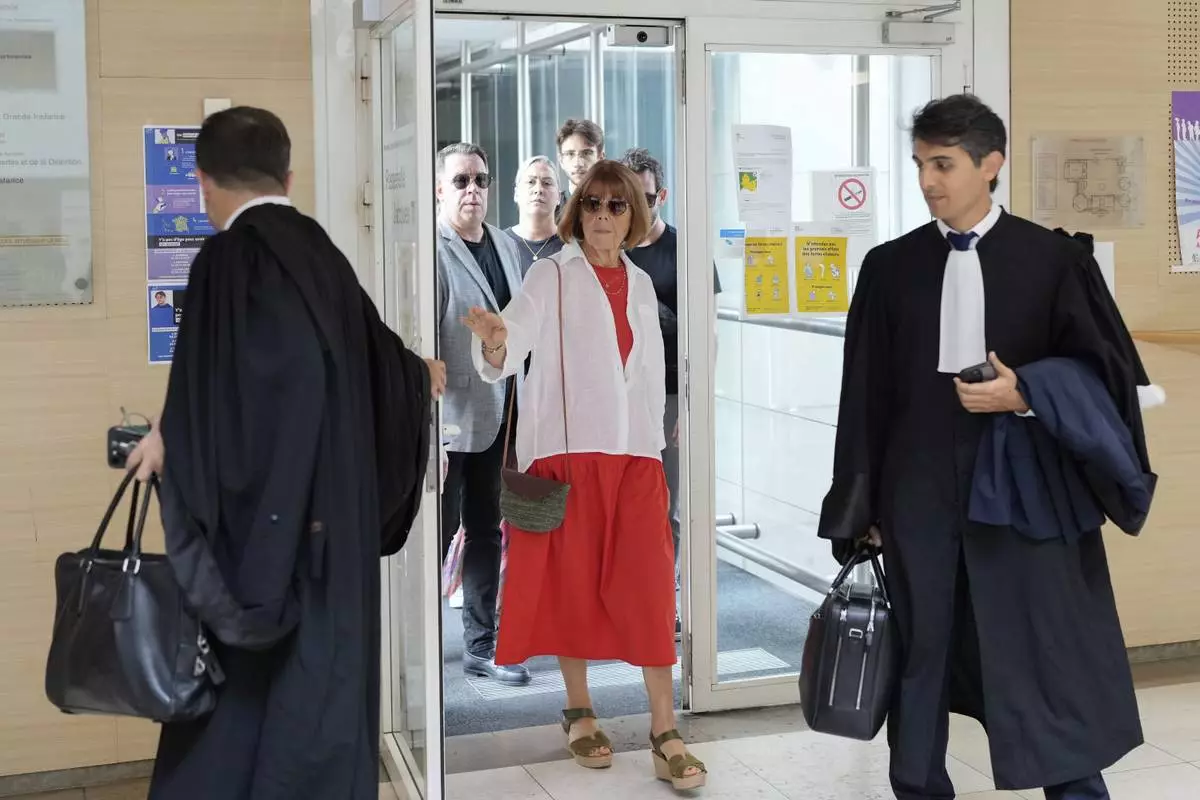
FILE - Gisele Pelicot, left, arrives in the Avignon court house, in Avignon, southern France, Thursday, Sept. 5, 2024. (AP Photo/Lewis Joly, File)
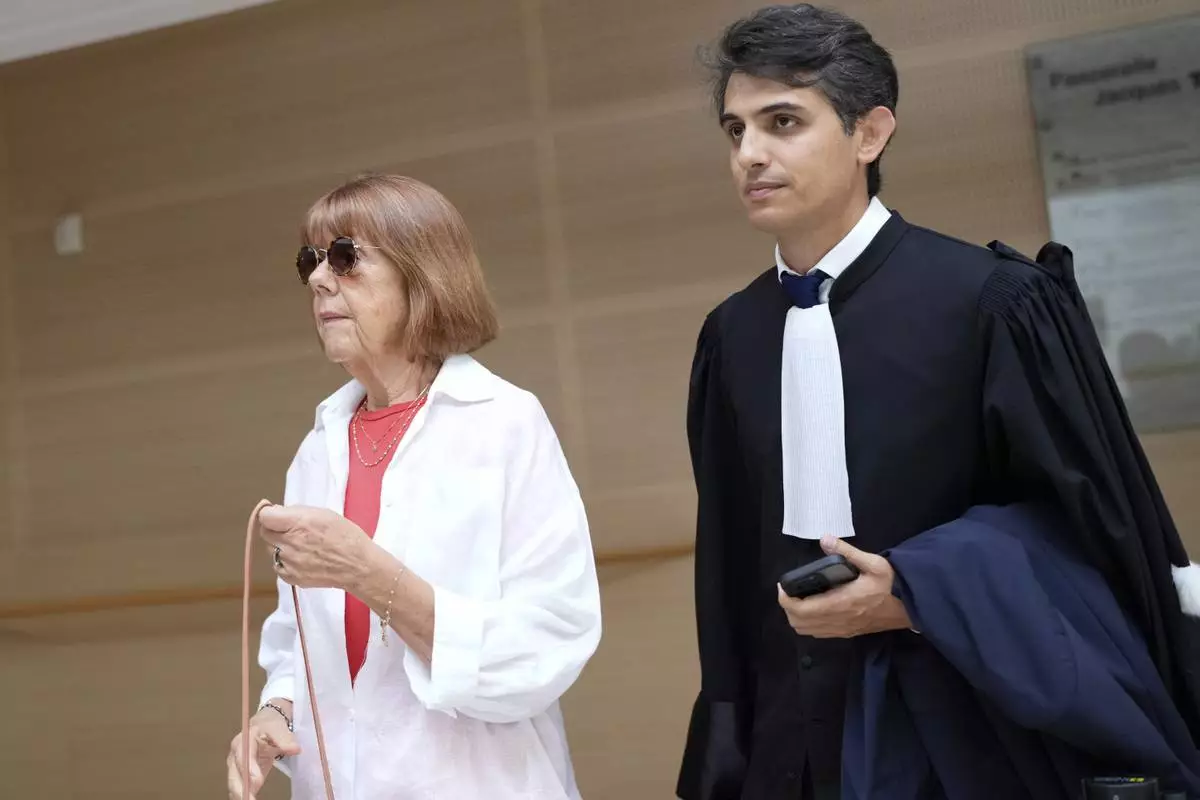
FILE - Gisele Pelicot, left, arrives in the Avignon court house, in Avignon, southern France, Thursday, Sept. 5, 2024. (AP Photo/Lewis Joly, File)



